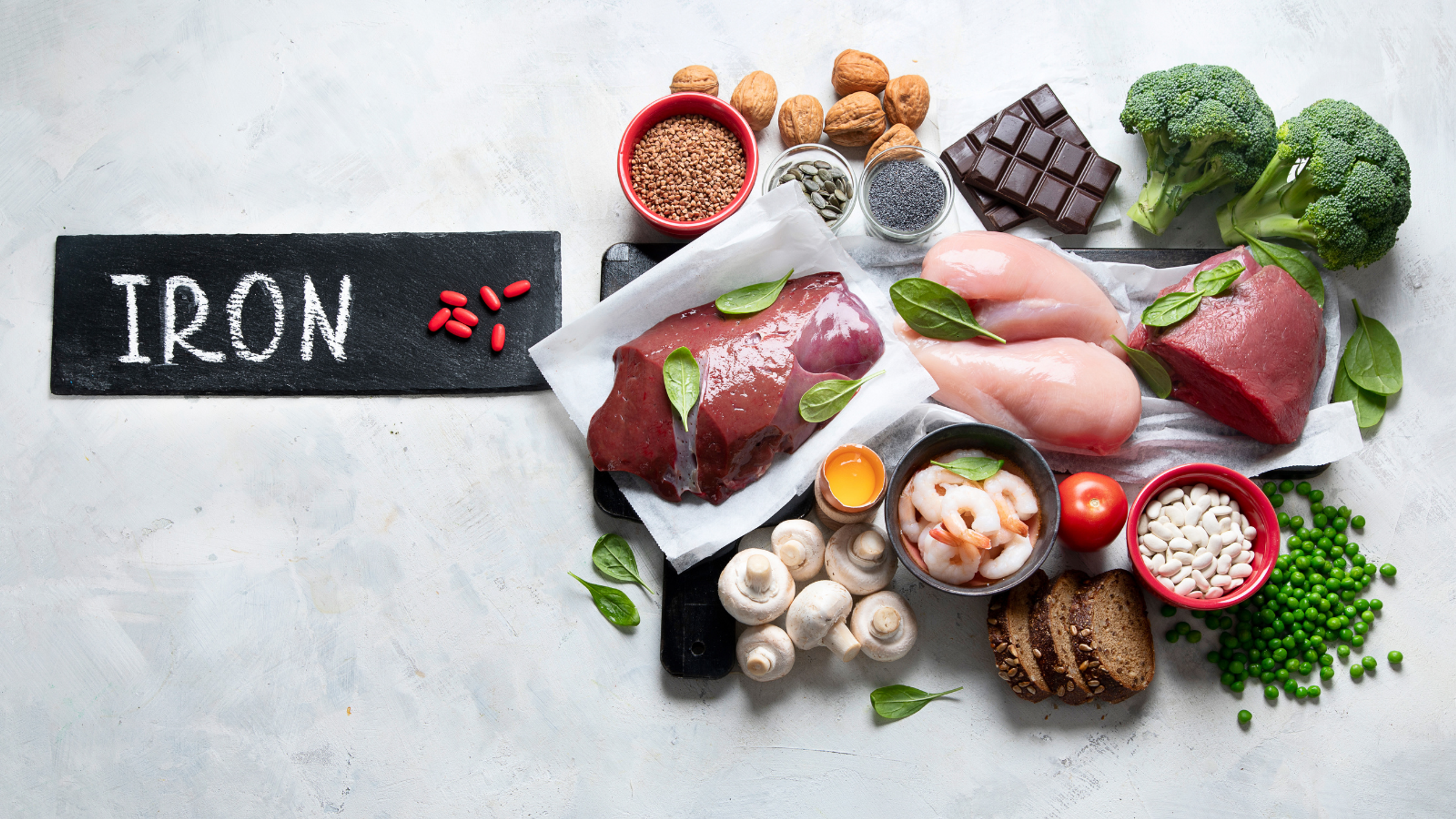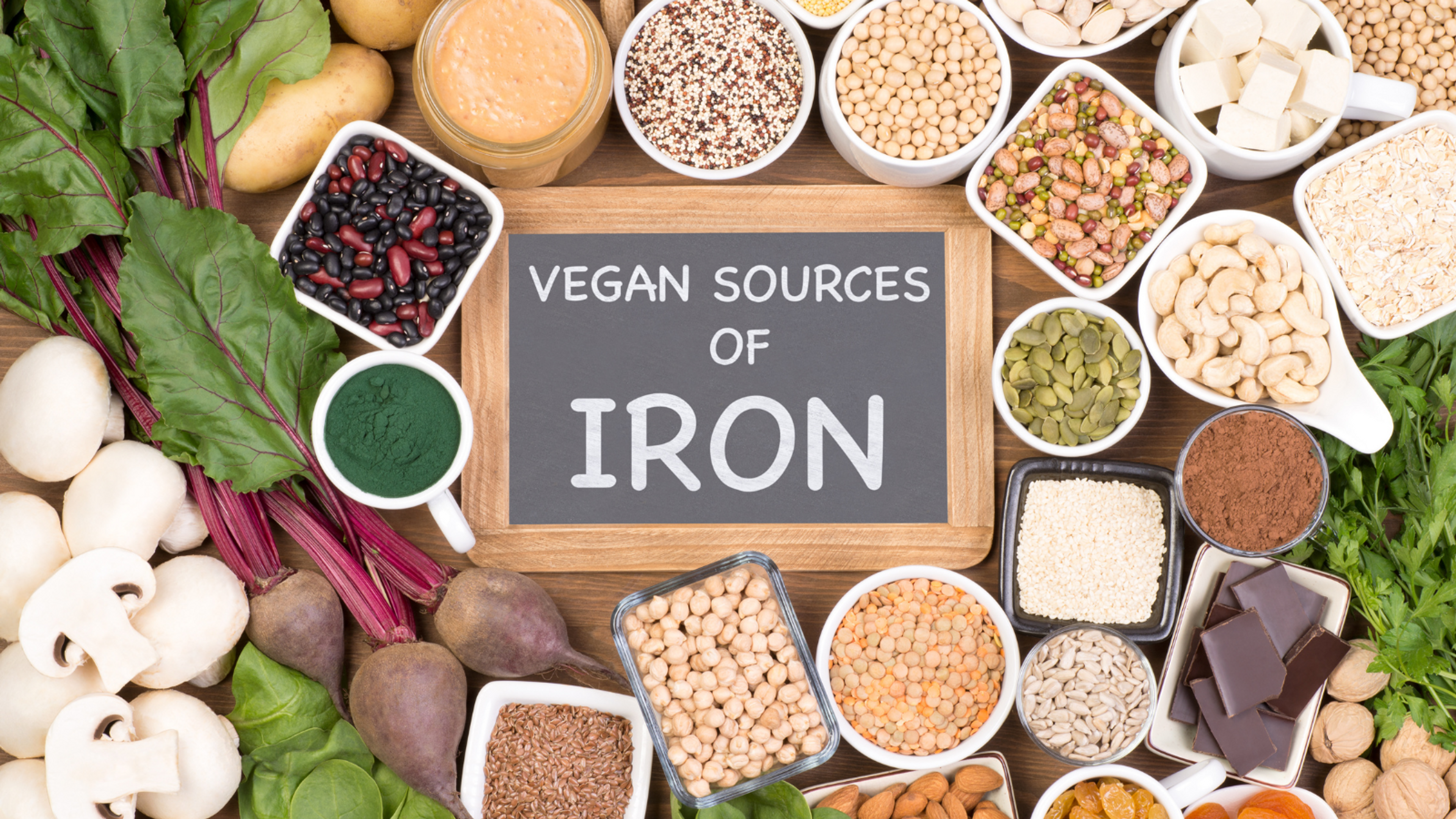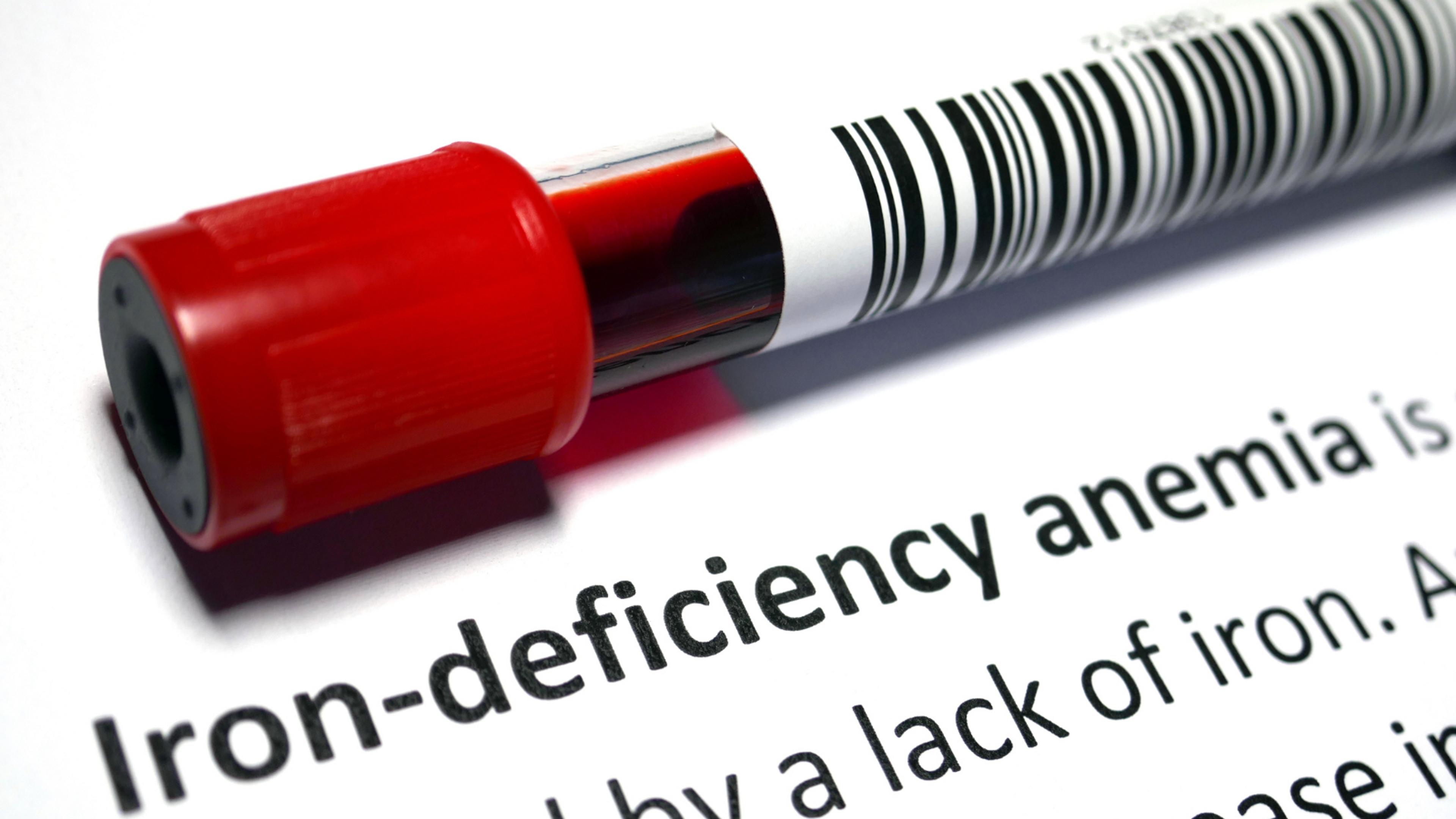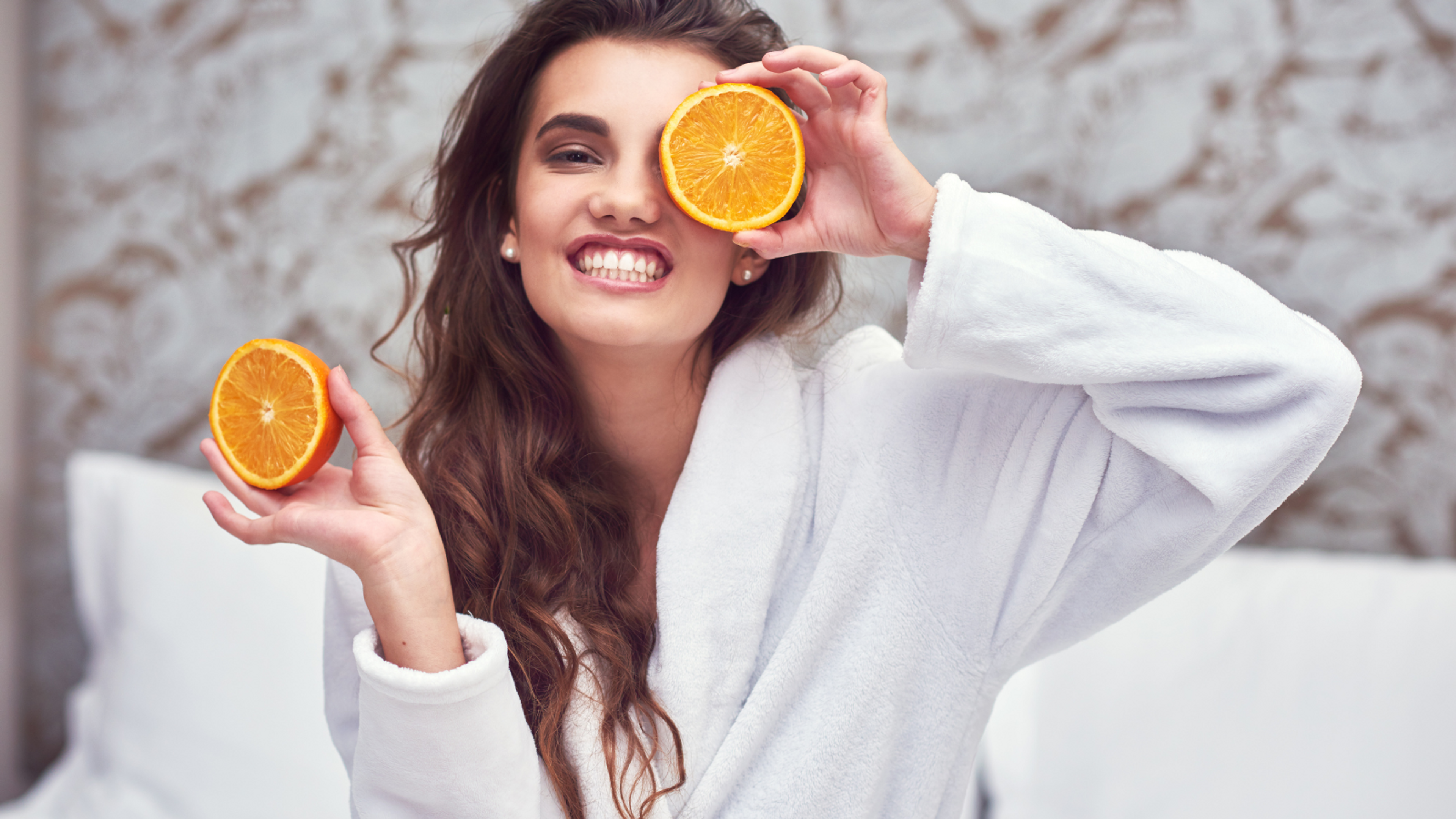Heme Iron: Unlocking the Power of Plant-Based Iron

- Key Takeaways
- Understanding Heme and Non-Heme Iron
- Sources of Heme Iron for Vegans
- Importance of Iron for Vegans
- Tips for Ensuring Sufficient Iron Intake on a Vegan Diet
- Conclusion
- FAQs
Are you a vegan worrying about getting enough iron in your diet? It's important to know that not all forms of dietary iron are created equal; there are heme (pronounced aa hee-m) and non-heme types, each with its distinct features.
A higher risk faced by those following a plant-based diet is iron deficiency. This blog is here to help you understand the difference between these two types of iron, identify sources of heme iron suitable for vegans, and provide tips on optimizing your intake. Dive in as we shed light on maintaining iron levels while enjoying a plant-based lifestyle!
Key Takeaways
- Heme iron is primarily found in animal products and has a higher absorption rate compared to non-heme iron, which is derived from plant-based foods.
- Vegans can obtain heme iron from rare sources such as tempeh, blackstrap molasses, and certain seaweeds.
- To optimize heme iron intake for vegans, it's important to combine plant-based sources of iron with foods high in vitamin C, as vitamin C enhances the absorption of non-heme iron.
- Iron deficiency is a potential risk for vegans due to the lower bioavailability of non-heme iron. Incorporating strategies like consuming vitamin C-rich foods and considering supplements can help ensure sufficient iron intake on a vegan diet.
Understanding Heme and Non-Heme Iron
Heme iron and non-heme iron have distinct differences in their sources, absorption rates, and advantages and disadvantages. This section helps you understand the types of iron crucial for maintaining a healthy diet preventing iron deficiency anemia.
Heme iron and non-heme iron are two distinct types of dietary iron with varying absorption rates in the body. Heme iron is a form of iron primarily derived from blood and muscle tissue, usually found in animal products like meat, poultry, and seafood.
It boasts a higher rate of absorption compared to its counterpart because our bodies can easily utilize it. On the other hand, non-heme iron comes predominantly from plant-based foods including whole grains, vegetables, nuts, seeds and legumes and are considered good sources of iron.
Despite being abundant in a variety of healthy foods, non-heme iron absorption by our bodies is inferior to heme-iron due to its different chemical structure. This stark contrast between heme and non-heme iron makes understanding both crucial for vegans striving for balanced nutrition.
Weighing the advantages and disadvantages of each iron type - Absorption rates of heme and non-heme iron
Both heme and non-heme iron are crucial for your health but have different absorption rates and sources. Heme iron, found in animal flesh such as meat, poultry, and seafood, is absorbed readily by the body with an efficiency of about 20-30%.
The advantage here lies in its high bioavailability. On the other hand, non-heme iron, sourced from plant foods like spinach and lentils has a lower absorption rate ranging between 5-12%.
This can be considered one downside to relying on non-heme iron from just vegan foods.
However, don't discount plant-based foods just yet! Non-heme types also come with their own set of benefits such as being rich in fiber and antioxidants while containing no cholesterol or saturated fat unlike animal products offering heme iron.
Consuming vitamin C with meals helps enhance the absorption levels of non-heme iron too. Therefore, it is essential for vegans to balance their diet properly so they receive adequate amounts of both irons for optimal nutrition.
Sources of Heme Iron for Vegans

Vegans can find heme iron in rare sources such as tempeh, blackstrap molasses, and certain seaweeds.
Plant-based foods teeming with non-heme iron offer a wealth of nutrition for vegans. Foods such as whole grains, nuts, seeds, legumes, and leafy greens are rich in this essential nutrient required by our bodies. It is important for followers of a plant-based diet to understand the daily dietary reference intakes of iron to ensure lower risk of iron deficiency.
Consider quinoa or oatmeal for breakfast; both are great options loaded with non-heme iron. Lunch could include a hearty serving of beans, soybeans or lentils while snacking on nuts and seeds throughout the day can provide an additional iron boost.
Leafy greens like spinach, kale, and broccoli are perfect additions to any meal but they truly shine in salads and smoothies where their high nutritional value is preserved through minimal cooking.
These plant-based staples not only deliver much-needed iron but also contribute valuable fiber plus other nutrients to your vegan diet ensuring you maintain strong health despite omitting animal products from your meals.
Identification of rare vegan sources of heme iron
Rare vegan sources of heme iron can be challenging to find, as heme iron is primarily found in animal-based foods. However, there are a few plant-based options that contain small amounts of heme iron.
One example is blackstrap molasses, which is a byproduct of the sugar refining process and contains trace amounts of heme iron. Another option is spirulina, a type of blue-green algae that also contains some heme iron.
While these sources may not provide significant amounts of heme iron compared to animal-based foods, they can still be included in a vegan diet to help increase overall iron intake.
Potential dietary combinations to optimize heme iron intake for vegans
To optimize heme iron intake for vegans, it is important to combine plant-based sources of iron with foods high in vitamin C. Vitamin C enhances the absorption of non-heme iron and can help increase overall iron intake for vegans.
Some great combinations include pairing iron-rich plant foods like lentils or spinach with citrus fruits like oranges or strawberries, bell peppers, or kiwi. Additionally, combining foods that are high in beta-carotene, such as carrots or sweet potatoes, with iron-rich plant foods can also boost iron absorption.
Another tip is to cook your food in cast-iron cookware, as this can increase the iron content of your meals. By strategically combining these dietary elements, vegans can ensure they are getting optimal amounts of heme-like iron from their plant-based diet.
Importance of Iron for Vegans

Iron is vital for vegans as deficiency can lead to iron deficiency anemia, causing fatigue, weakness, and impaired cognitive function. To ensure sufficient iron intake, vegans should focus on consuming plant-based foods rich in non-heme iron and consider taking supplements if necessary.
Iron deficiency is a potential risk for vegans due to the lower bioavailability of non-heme iron found in plant-based foods. This means that although vegan diets can provide sufficient iron, it may not be easily absorbed by the body.
As a result, vegans may have lower iron stores and an increased risk of developing iron deficiency anemia. However, it's important to note that surveys have shown that iron deficiency anemia is not more common among vegetarians compared to the general population.
To mitigate this risk, vegans should focus on consuming high-iron plant foods such as lentils, tofu/tempeh, spinach, beans, and Swiss chard, while also incorporating vitamin C sources into their meals to enhance iron absorption.
Tips for boosting iron absorption on a vegan diet

To ensure optimal iron absorption on a vegan diet, it's important to incorporate certain strategies into your meals. One effective tip is to consume vitamin C-rich foods alongside non-heme iron sources.
This can enhance the body's ability to absorb iron. Examples of vitamin C-rich foods include citrus fruits, strawberries, and sweet peppers. Additionally, soaking beans and grains before cooking them can help reduce compounds that may inhibit iron absorption.
Cooking with cast iron cookware is another helpful tactic since small amounts of dietary iron can be transferred into food during the cooking process. By implementing these tips, vegans can maximize their intake and absorption of this vital nutrient.
However, it is important to note that calcium or calcium supplements can hinder the absorption of iron. Therefore, it is advisable to consume calcium-rich foods separately from iron-rich foods to optimize iron absorption.
For vegans, it is important to note that the body absorbs only 2-20% of non-heme iron, while heme iron from animal sources has a higher absorption rate of 15-35%. This means that vegetarians and vegans need to consume twice as much iron in their diet as meat-eaters in order to absorb the same amount of iron.
Considering iron supplements for vegans
Vegans may need to consider iron supplements to ensure they are getting adequate amounts of this essential nutrient. Iron deficiency can be a concern for vegans, as plant-based diets typically provide non-heme iron with lower bioavailability compared to heme iron found in animal products.
Supplements can help bridge the gap and support optimal iron levels. It's important for vegans to choose a high-quality supplement that provides the recommended daily intake of iron, which is 18 milligrams for adult women and 8 milligrams for adult men.
Additionally, taking an iron supplement alongside foods rich in vitamin C can enhance absorption. Plant-based sources of vitamin C include citrus fruits, strawberries, bell peppers, and broccoli.
Tips for Ensuring Sufficient Iron Intake on a Vegan Diet
To ensure sufficient iron intake on a vegan diet, there are several tips you can follow. Firstly, it's important to consume a variety of plant-based foods that are rich in non-heme iron, such as lentils, tofu, spinach, and quinoa.
These foods can provide a steady supply of iron to meet your daily needs. Secondly, pairing iron-rich foods with vitamin C sources can enhance the absorption of non-heme iron. Incorporate citrus fruits or vegetables like bell peppers into your meals for an added boost.
Additionally, soaking beans and grains before cooking them and using cast-iron cookware can help improve iron absorption. Finally, considering iron supplements may be necessary if your levels are low or if you find it challenging to meet your needs through diet alone.
By following these tips and being mindful of your dietary choices, vegans can ensure they get enough iron for optimal health without relying on animal products.
Conclusion
In conclusion, vegans can obtain sufficient iron levels through plant-based sources of non-heme iron. While heme iron is predominantly found in animal products and is more easily absorbed by the body, careful dietary planning and incorporating foods rich in non-heme iron can help meet iron requirements.
Additionally, considering factors that enhance absorption, such as consuming vitamin C-rich foods or taking supplements if needed, can further optimize iron intake for vegans. Ultimately, with mindful food choices and proper supplementation when necessary, a vegan diet can provide an adequate amount of iron for optimal health.
FAQs
1. Can vegans get enough heme iron from plant-based sources?
No, heme iron is exclusively found in animal products and cannot be obtained from plant-based sources. Vegans can obtain non-heme iron from plant foods such as legumes, whole grains, nuts, seeds, and leafy greens.
2. What are some good plant-based sources of non-heme iron?
Good plant-based sources of non-heme iron include spinach, tofu, lentils, chickpeas, quinoa, pumpkin seeds, and fortified cereals or breads. Consuming these foods along with vitamin C-rich foods can improve the absorption of non-heme iron.
3. Is there a difference in absorption between heme and non-heme iron?
Yes, heme iron found in animal products is more easily absorbed by the body compared to non-heme iron from plant-based sources. However, consuming vitamin C-rich foods with non-heme iron can enhance its absorption.
4. How can vegans ensure they meet their daily recommended intake of iron?
Vegans can ensure they meet their daily recommended intake of iron by including a variety of plant-based foods rich in non-hem

